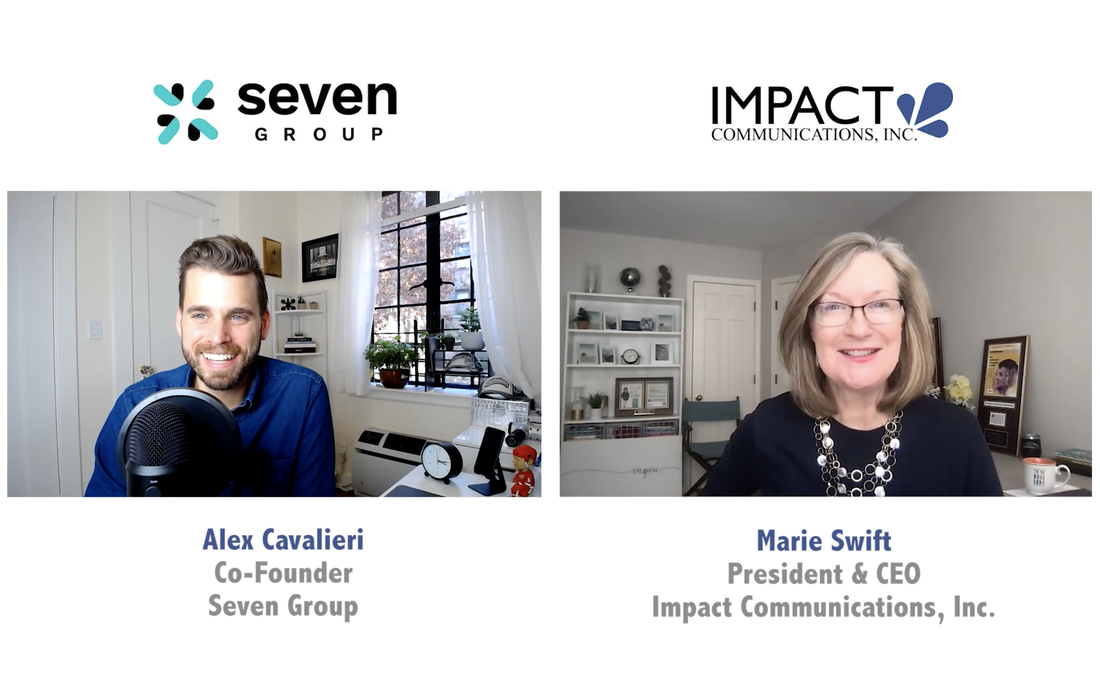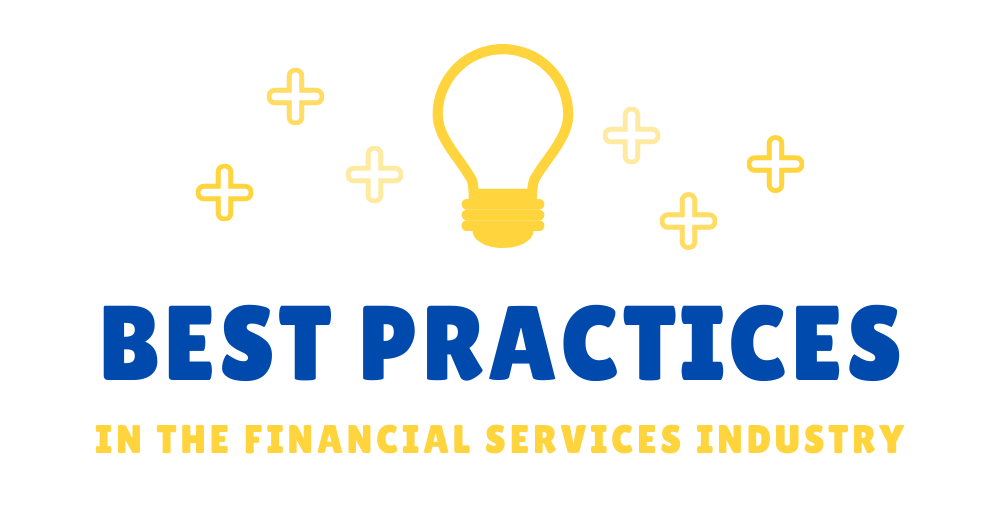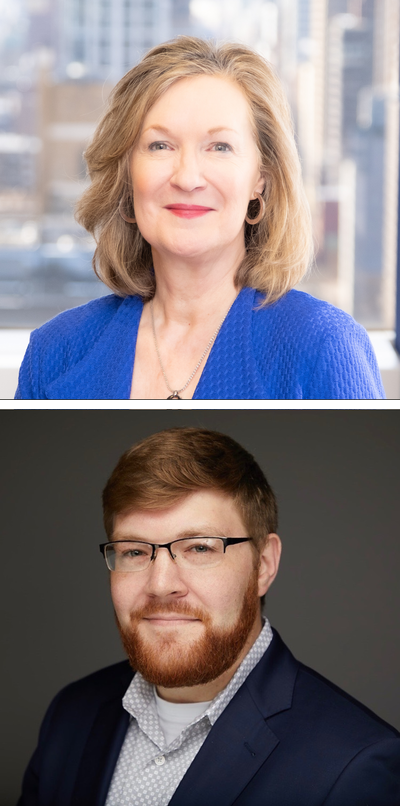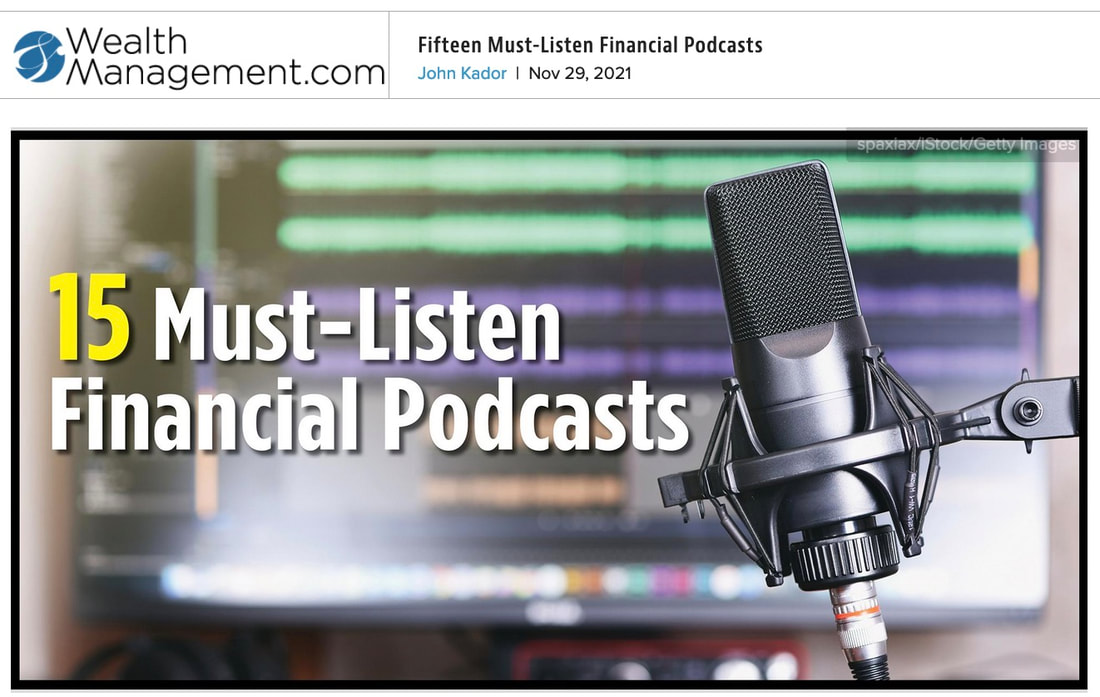|
In this Swift Chat video conversation, Marie Swift of Impact Communications, Inc. speaks with Alex Cavalieri, Co-Founder of Seven Group, a "hybrid marketing platform" that gives financial advisors insights and tools they need to market their brand more effectively, create deeper client relationships, and reach new audiences. The two talk about the importance of having a niche, finding and marketing to ideal clients, and how Seven Group's hybrid platform can help advisors through the whole marketing process. Seven Group's strategic guidance, marketing technology, and content library is a perfect complement to Impact Communications' custom content creation, PR and credibility marketing solutions.
To learn more about Alex and Seven Group visit: www.TheSevenGroup.com. Don't forget to mention Marie Swift and the Swift Chat vlog/podcast to get 25% off your first 6 months with Seven Group.
If you have a developed niche and you are scaling that niche, then [studies show] you're doing twice as much business then someone who doesn’t." ~ Alex Cavalieri, Co-Founder, Seven Group Transcript of Conversation
Marie Swift: Hey everybody. Marie Swift here from impact communications and I'm here for another Swift Chat. Today I am joined by Alex, helped me out with your last name, Cavalieri.
Alex Cavalieri: Perfect. You got it. Swift: Is that Italian? Cavalieri: It is yeah. It's Northern Italian. Swift: So, what's your favorite Italian food? Cavalieri: I'm a big Bolognese guy. I don’t know if I butchered that pronunciation cause the most Italian thing about me is my last name. I don't know if I'm 3% or 10%. I keep telling everyone I wanted to do Ancestry.com, but I haven't gotten to it, but definitely pasta all day. Swift: Me too. Love it. Where in Italy have you traveled? Cavalieri: So I've only been to Italy once and I went to Southern Italy for my honeymoon. My wife and I went to Capri Positano and the other town is escaping me, but it was a blast. It's beautiful there. You hear everybody lives longer in Italy you can tell why cause it's much different than here in the States. Swift: Okay so, I have to tell you this. We went to Positano and Sorento and we went to Capri. It was horrible weather, but we had such a blast because the people and you know, those beautiful cliffs, we hired a driver whose name was Giuseppe and so it's Giuseppe or one of his "brothers" who shows up and says, "Hi I’m Giuseppe's brother. I came to get you because he's busy." They were so much fun, and they drove us around, so we didn't fall off the cliffs. We would have been watching, like whoop, there's no guard rails as you know, but he is incredible and this is a thing that Giuseppe and all his brothers would say, "We Italians live by this motto: Live softly and make a big party." Cavalieri: I love it. I got to do more of that though. I need more of that mantra in my life. The Seven Group Platform Swift: Well, so we want to talk about what you do at the Seven Group and why you're doing this. So would you just share a little bit about who you are and what you're doing and let's see what value we can add and some good tips will come out around marketing along the way. Cavalieri: Yeah. I could go hours on this so I’ll give you kind of the short and sweet. I'm a co-founder of Seven Group, which is a hybrid marketing platform for financial advisors. When we started working on the platform a little over two years ago, we essentially saw that advisors were really struggling with marketing, kind of in two core buckets. The first bucket of advisors, where they had tried to marketing, they had tried some third-party tools, but a lot of them would onboard the tool and then just really let it sit on the shelf. They wouldn’t use it. They wouldn't know how to use it. They wouldn't be held accountable to use it and then if there are things they want to do outside of the tool or marketing platform, they couldn't necessarily do it because they didn't have the skill set or know how to actually execute on it. We saw a lot of advisors falling into that bucket. The other bucket was we had a lot of advisors who had just done no marketing before at all. They had built their practice off referrals, word of mouth and from that perspective, really wanting to help them set a strategy forward. So, we really wanted to form a platform and program to where we give advisors access to content. We give advisors access to the ability to send posts out, schedule posts, automate drip emails for clients and prospects, but also too we pair that with a consulting program where we essentially coach them throughout the entire process. We help them think through different marketing tactics outside of our platform and really help them navigate how they should be measuring the effectiveness of marketing, because we know marketing takes a long time and if you're not making progress in certain areas then you could feel like you're spinning your wheels. What we did is set out to really fix those two things and help advisors not necessarily have to spend all the money in the world and still do a lot of it themselves, but really get the help and hold their hand as it relates to the process. Swift: I love that and you know there are a number of new solutions out there for independent advisors. I think that they've come onto the horizon. Kind of like gangbusters in the last five years and of course I've been doing this longer than five years but, you know, there used to just be custom consulting and custom content. Now we see the rise of canned content, curated content. Custom content of course. And then I'm big on credibility content, which is where you're actually in the news that you push out on your social or to your email list. But I think that they all go beautifully together and I read something, I don't know if this was on Twitter that you said this Alex, but it stuck with me. "There's no such thing as digital marketing strategy," or something like that. There's just good marketing strategy, right? Cavalieri: Yeah and I think to that point, it's about everything's digital now. It's not something where, you know, back when I started in marketing, I started at BlackRock over ten years ago. I was there for seven years and essentially we had a digital marketing team and we were only focusing on digital initiatives, why other marketing teams were focusing on other things back in 2010 and now it's just all marketing, digital marketing is marketing and it's how you operate your business. Swift: You know, it's interesting. Everything old is new again, we're just talking as we're getting warmed up about these corded apple earbuds and how they're now cool because they send a message like I'm busy, you know, this is my little wall. Don't come and talk to me, especially if you're wearing a mask, right, or a hoodie or something. You’re really like zoning in, but I'm thinking about snail mail and I don't know how you feel about this, there might be a good use case for trying some postcards or letters. Finding Your Core Client Persona(s) Cavalieri: Yeah. I think it all depends on your audience and how they're consuming content. This is something where we really try to take a step back with any advisor that we work with to understand their core persona, that they want to go after their core niche that they want to build and generally making sure that that's crystal, before they start to market. One of the biggest mistakes that we see advisors make, more broadly from a marketing perspective, is we see them make the mistake of I'm just going to start and I'm just going to start posting things or running ads or deploying events. They don't necessarily know, okay one, who are they serving? Who do they love to serve? Two what is their value-add value prop that they're adding to their lives every day and three really figuring out where that person lives and then how their channels are impacting their decision making. From that perspective to your point on snail mail, snail mail could be a great tactic for a specific target demo. Whether someone who may not necessarily be as digitally native or for a specific region of the country who may just have a bigger focus on getting more direct mail or print or whatever the case may be. From that standpoint, what we'd like to say is any channel will work. It's just a matter of if your audience is living there and you don't have to try to be everything to everybody. Swift: Yeah. I love what you're saying. You know you're saying the same thing that I say only in different words. I talk a lot about the three M's your market, your message and then your methodologies or your mediums, right. So, advisors are sometimes frugal. They're sometimes hungry. They're sometimes just eager. They want to get right to getting stuff done, right. You got to love that, that driver mentality, but sometimes, well all the time I think, it makes sense to think about the market. Who are you serving and why? That drives to this whole idea of client personas, understanding where they live, where they congregate, who they talk to, what their tribe is, how are you going to reach them? What keeps them up at night? That psychographic not just they're engineers, they're pre-retirees, they're women. It's like what, no that's not niche marketing. That's not target marketing. That's just generalizations. Talk to me a little bit about how you think about zoning in, on the right people. Cavalieri: Yeah. So what we tell advisors to do, and we help them do this in the context of when they work with Seven is one, we have them take a step back and we really say, okay, who do you truly see yourself serving in the future? The best way to do that is take a look at your current book and say, okay, who within your current book are your top clients and why are they your top clients? Is it the way they communicate? Is it the type of individual they are? Is it their profession? Is it that the type of information they're requesting from you? That's where you usually have them start is take a look at their current book because that's who they know the best and really figure out who they are, who their top clients are and why they are their top clients. Then the next thing we have them do is essentially go out and interview those folks and not having outside of the portfolio review conversation or outside of the financial planning conversation, we give them a set of 12 questions, or we help them unpack the questions that they want to ask. We really say, okay, take a step back and ask these questions of what are those big life decisions that are happening. How are they making them? What channels are they consuming information on? What type of information are they consuming? Are they consuming video? Are they consuming articles? Are they commuting and listening to podcasts? Then the other questions we have them ask is, when it comes to their decision-making process who's the most influential people in their life? Is it their family? Is it their friends? Is it the news? Is it Twitter? Whatever it is we really try to help define those elements of the individuals versus, to your point, the general demographic information, you can find that type of information anywhere on any social platform. I think the key is how are you going to hook the people in that you're going after, into starting to consume your content or into starting to consume your information or follow you as a thought leader. Swift: Ironically I got this email this morning, it was from the Seven Group, and it was all about what we're talking about right now. You have this great information from the XY Planning Network Live event. You've got an episode, I haven't listened to the episode yet, but I've got this chart that shows that advisors who XYPN surveyed who had a niche, they're doing twice as much business in scaling and growing as people who have no niche, but are just like casting around. What can you share with us about that? The Importance of Having a Niche and How to Define It Cavalieri: Yeah that was cool. We were at XYPN Live fall 2021. We're a partner vendor of theirs so if anybody who's listening who's a XYPN member you do get discounts for Seven, there's a plug, but essentially what we saw in the conference last week that Michael and Alan were presenting, and they were talking about the fact that if you have a developed niche and you're scaling that niche then you're doing twice as much business then someone who doesn’t. Now the reason why we believe that is the case and the reason why it is the case in a lot of the efforts that a lot of our members are doing is because essentially digital has fragmented everything. You think traditionally about how people heard about someone, it was a friend or a family, it was a referral from a colleague, it was in the newspaper, it was at a golf outing, it was at a dinner event and that was your traditional way. Basically, as an advisor anybody who would come through the door that would have a certain amount of money who fit the bill monetarily would essentially have the ability to work with you or you would work with. From that perspective where we ended up seeing digital, really kind of fragmenting that is you can become an individual who's tied to any type of micro-community. You can basically silo yourself in individual channels. You can consume what you want to consume when you want to consume it on what channels you want to consume it and from that perspective, it's a lot harder to get in front of people and it's a lot easier to get in front of people as well. There's kind of like it's a double-edged sword. So, the only way to really cut through the noise and to also get ROI on any money your spending online is to go super specific. Is to really have an understanding of your pairing the targeting that you're doing with the content that you're building and those two things intersect in a way that applies to that individual that you're going after. Swift: Amen brother. Amen. I want to read your seven questions to get your niche right:
I love this. To my tribe, I say: if you're not subscribing to the Seven Group email newsletter, you need to get on the list. Alex, how do they do that? Cavalieri: So right now they can either send us an email at the SevenGroup.com, or if they book a demo they get automatically added to the list. So generally, those are the two spots to sign up. Swift: And you've got a podcast. Tell us about that. Cavalieri: Yeah we've got a podcast, we’re on episode 77. Essentially where we landed with that was it's all about marketing business development for advisors. We bring on guests like yourself to come on and have a conversation about marketing, BizDev and what advisors can do in a digital world to really navigate it. We like to think of ourselves as kind of the pulse of the advisor community and as you know, cranking out a podcast every week or every other week is a fun time, but it's been super fruitful for us. It's been a really cool experience to grow that. Swift: Yeah. You know, my Swift Chats, I just do whenever I find somebody interesting or when I feel like. I know that all the marketing gurus, other than me, say that's bad don't do that, but you know I'm just doing it when I find something that lights me up or somebody that lights me up and so you and I are recently getting to know each other and I'm really excited about what I learned when you and I spent some time together, you gave me a little demo, showed me around. I got to see the platform and some of the content. I'm going to find a way to have one of my retainer clients come and work with you because I think that what you do and what I do are very copacetic and they overlap in some ways and yet there's so much more that we could do if we could leverage. So I'd like you, if you will, in the next little bit that we've got to talk a little bit more specifically about your offer, what do you for advisors? How does that work? What are the price points, you know, range of options and where are you going to be in 2022 so we can meet together and clink a glass. Cavalieri: Yeah. I'll kind of just give you the context on the model and how we operate. So basically our platform, as I mentioned, we’re half marketing tech, half consulting firm for the advisor. Generally, when an advisor comes on board, every advisor that we work with, whether they're $0 or 500 million in AUM, We go through a very specific three phase program. Now the program tweaks depending on your tier. We have a three-tier subscription model low, medium, high. Essentially as you get higher, you get a little bit more custom content as you get lower it's more automated access to the platform, less consulting. Generally, when you go through the program the advisor starts off it's, one-on-one onboarding 60 minute discovery session where we just understand the practice. We want to be able to understand every advisor we're working with whether we talk to them every day, or whether we talk to them once a quarter. We want to know that if we're giving them advice or direction or advisement, we are really making sure that we know exactly what their practice is about and who they're serving. Generally, we spend that 60 minutes unpacking their practice, their current book. What they want to do from a marketing perspective, what their vision is for the firm, who they want to serve and really get the lay of the land in their practice. Then from there we move into phase two, which we actually build them a marketing plan. It's an eleven page document that we provide to the advisor that includes that persona crystallized with the details broken out about where they're living and who they are. It includes a content framework, so what content they need to be creating or leveraging from our system at each part of the funnel. So, you're top of the funnel content, your blogs, your videos, your mid funnel content, your eBooks, your guides, your webinars, and your bottom funnel content, your nurture programs, your win-back campaigns, et cetera. We also include a distribution plan in that strategy that we provide them, so essentially what channels they should be living in. What should the effort look like on those channels and then also too what the investment spend should be. Should they be advertising at all versus doing all organic? In addition to that, we provide them a five month roadmap where what they're going to tackle on month one, month two, month three, month four, month five. At that point we move into phase three. So, phase three is when they start to leverage our platform more which gives them out of the box customizable blog content, email nurture programs, presentation templates, social media graphics, kind of everything you could think of from a content perspective and then we pair that with the ongoing consulting program, monthly catch-ups on demand training sessions and then they each have their own private channel where they can talk to our teams. How Do We Measure Success? Swift: That's spectacular. One of the questions that I know you get and that I get all the time is how do we measure success? There are metrics that matter and metrics that are just kind of interesting to watch, right. So, because I'm big on credibility marketing it's hard to put a price tag on being seen in Barron’s. As somebody who's solving a problem for a client, like I just had three clients in Barron's, they're all RIAs, they were three of the five advisors in this Barron’s article and they talked about how they have helped an anonymized client, an anonymized story is what they told the journalist, of avoiding some catastrophe, a calamity in the retirement because the advisor was smart enough to see that train wreck happening. So, it's hard to put a price tag on that, but I can measure in this instance, can we see people coming to the website right when the article published? Do we hear clients saying to you, wow I saw you in Barron’s. Did they see it natively on Barron's or was it because we helped them see that through social media or through an email campaign or somebody else mentioned? I mean, there's so many ways that people are influenced or perceive you as the best choice, right. I wonder how you think about the metrics that matter, because you have technology that can measure some of this. I have some technology, but we're not a tech firm so talk to me about metrics in your mind and how you measure what matters in marketing. Cavalieri: Yeah so when we think about metrics and we put together scorecards for advisors when they start with us, essentially we think about our metrics in three buckets, because as you pointed out there are things that are going to provide impact from a marketing perspective and a business perspective, but it may not result in direct business, especially at the beginning because marketing takes time. So, when we think about our marketing plans and what we're going to measure from a scorecard standpoint, we think about them in three buckets. The first bucket is how well are you improving brand awareness? That could be everything from increase in traffic to your website while maintaining quality, so while maintaining bounce rates, time on site, pages per session, et cetera. Really that's just purely, are you getting more people into your brand? That could also be something like, are you getting more engagement on social and measuring your social engagement uptick? The third is usually looking at search impressions, organic search impressions, both from a branded and unbranded standpoint. We like to think that if you start to see a big uptick in branded searches in Google search console, that's a very good signal that a lot of your early marketing is working because there are people, usually what they do is they'll see your post on social. They'll see it again. They'll see it again and then they'll just likely jump to Google and Google your brand name. So, measuring organic search impressions over time is a really good metric to understand what your brand is doing from a brand awareness perspective. That's the first bucket. The second bucket is really understanding those engagement metrics. What we like to say is inbound inquiries, over time, are we increasing those, are we decreasing those, et cetera. Newsletter signups if the advisor has a newsletter, are we increasing newsletter signups to the site? If we're driving more traffic there naturally there should be some kind of connection flow if you have the right conversion points on your site. Also, if you're running any campaigns, webinars campaigns, eBook campaigns. Are you driving any lead momentum there? That's really the engagement bucket of what we measure as it relates to the momentum side and then conversions. What we'd like to measure on conversion is less so hard numbers, more so percentages. So, a lot of advisors measure number of leads that they got into the firm versus quality of leads. We think that measuring the number is very backwards to what you should be measuring. Generally what we like to think is what was your lead to meeting conversion ratio or what was your meeting to new client conversion ratio? From that perspective, you're not necessarily measuring the numbers. You're measuring, am I getting the right people into the pipeline that I then can turn into a client or serve in some way? Swift: It's fascinating. I always learn as much from these conversations as being at a conference because I'm talking to an expert and we're talking language that you and I understand a lot of people listening or watching this are going to go, I've always been curious about conversion. What does that mean? You know, so hopefully there's something here, listeners, viewers, that you can take away and, you know, you don't have to have a master's degree in marketing to do marketing, right. You just have to have a plan. A good plan where you can get where your people are living and resonate with them. Let’s kind of go back to that humanize, empathize, systematize, any kind of -ize that you can put on the back end. In the last little bit of time that we've got here. Tell us anything that's fun on the horizon business wise, personal wise. If you have a special offer for my viewers or listeners let's close with that. Cavalieri: Yeah. So, from an offer perspective, if you do come through the podcast and you mentioned Marie and the podcast what you'll do is you'll get 25% off for the first six months. That's a pretty solid deal from whatever tier subscription you come into. So www.SevenGroup.com is the URL. 2022, It's a lot of what we did in 2021. We want to make sure that we're growing the business particularly. We want to make sure that we're serving advisors and the third thing is we want to make sure that we're maintaining the service level that we provide right now as we grow and help advisors adapt to the digital world, I think that's the key is these channels are changing very rapidly, the algorithms are changing, and the features are getting rolled out quicker and quicker. We want to have the ability to help them navigate every single aspect of it and that's what our goal is in 2022 and maybe some cool partnerships with your firm and others. So that that's in the cards as well. Swift: For sure and definitely we will have a drink of some sort and some pasta with Bolognese sauce. That'll be our thing from here on out. Let's meet for pasta and Bolognese. Thank you for being here. I've enjoyed every minute. Cavalieri: Thank you. Comments are closed.
|
About
|
|
Stay Connected
|
Phone: 913-649-5009
©2023 Impact Communications, Inc.
|





